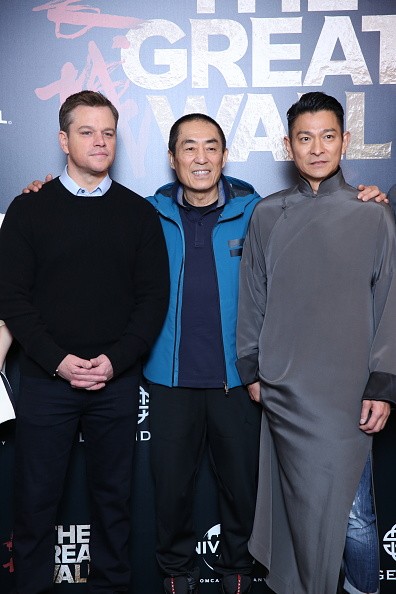Pairing an award-winning Hollywood actor with China’s most famous director probably seemed like a recipe for movie success. Yet, this collaboration turned to be a cultural flop.
Set in ancient China, this Hollywood-Chinese collaboration features a story on monsters attacking the country’s most famous landmark—the Great Wall—where the movie got its title.
With a $150 million budget, “The Great Wall” is the most expensive Hollywood-Chinese collaboration ever. Though it earned $67 million on its opening weekend in China, the film received terrible reviews and social media ridicule.
Even Matt Damon, who played as the film’s main character, failed to save the day. In fact, because of his casting, some critics accuse the film of “whitewashing” the characters and using the “white savior narrative.”
This is not the first time that Zhang Yimou, the film’s director, casts a white actor in a Chinese film. In 2011, he cast Christian Bale as the lead in "The Flowers of War," a movie about the Nanjing Massacre.
Despite strong support from the government and a huge budget, “The Flowers of War” also flopped locally—showing that Hollywood and China do not mix well.
So why do Hollywood-Chinese films flop? According to critics, one of the common mistakes of the directors and producers of these collaborations is merely using Chinese elements and combining them with Hollywood style.
Most Chinese critics and moviegoers see the incorporation of Chinese actors and products to Hollywood films as a form of pandering, just to expand the film’s market share.
To get box-office glory in china, the world’s second-largest movie market, a better approach would be to create a studio in China and hone the talents of young local artists and directors. DreamWorks did this with”Kung Fu Panda 3” and it was a proven success.
Hopefully, the directors and producers of Hollywood-Chinese films would learn from their mistakes instead of emulating the techniques used in the previous movie flops.
As for “The Great Wall,” though reviews might seem grim in China, the director and producers are still hoping for a better response from the international market when the film opens in Feb. 2017 in the United States.



























